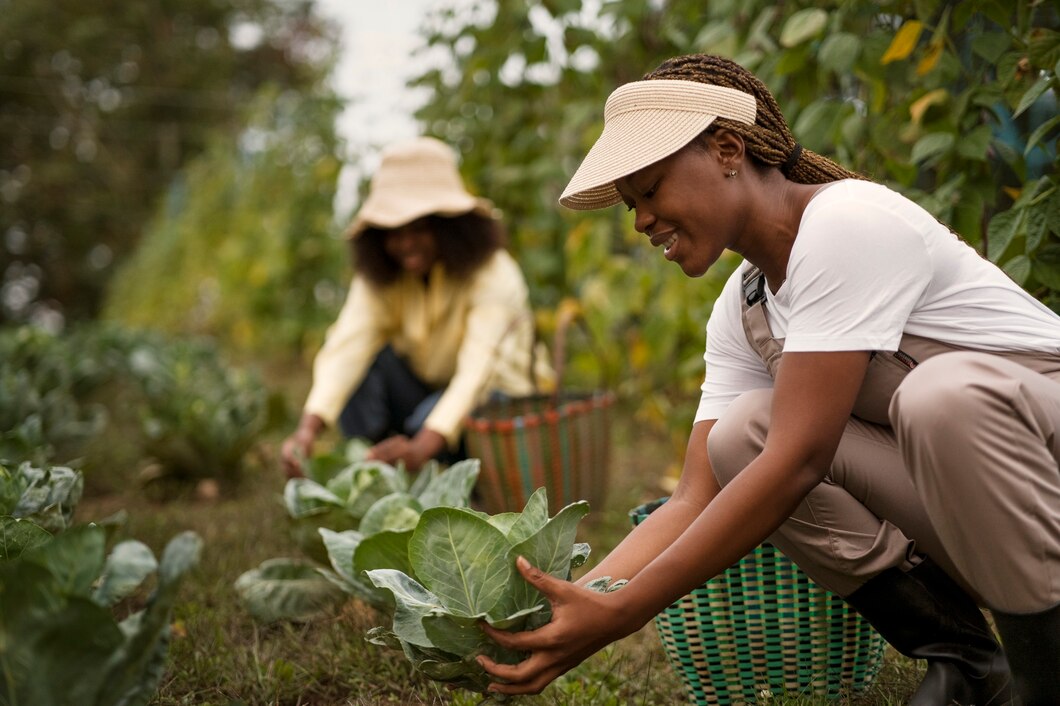Food security and economic growth in Africa are inextricably linked, and with the continent’s growing population, achieving both goals has become increasingly challenging. The impact of climate change, including erratic rainfall patterns, rising temperatures, and more frequent droughts, has made traditional farming methods less reliable. As a result, Africa faces a paradox: while the demand for food grows, agricultural productivity is declining in some areas due to these environmental stresses. To address this, there is a growing focus on sustainable farming practices, particularly agroecology, which has been touted as a potential solution. However, despite its promising benefits, agroecology was notably overlooked at COP29, missing an opportunity to be integrated as a central strategy for sustainable agriculture in Africa.
Agroecology and Its Importance for Africa
Agroecology, a holistic approach to farming that combines ecological principles with sustainable agricultural practices, seeks to balance food production with environmental stewardship. It emphasizes biodiversity, soil health, water conservation, and the reduction of external inputs like synthetic fertilizers and pesticides. These principles make agroecology particularly suitable for Africa, where smallholder farmers dominate the agricultural landscape and are highly vulnerable to the impacts of climate change.
The Comprehensive Africa Agriculture Development Programme (CAADP), a policy framework aimed at boosting agricultural productivity and improving food security across the continent, has traditionally focused on increasing crop yields through conventional methods. While these methods have seen success in some areas, they often come at a high environmental cost and do not adequately address the long-term sustainability of the sector.
At COP29, the failure to prioritize agroecology as a key strategy for integrating sustainable practices into agricultural policies left a gap in the conversation around climate-resilient farming. While climate change adaptation strategies were discussed, the exclusion of agroecology highlights the tension between modern, industrial farming techniques and traditional, sustainable practices that could offer more enduring solutions to food insecurity and economic growth.
Botswana’s Agricultural Strategy and New Approaches
In response to the challenges posed by climate change and the need for sustainable agricultural development, Botswana has started to incorporate new technologies and sustainable farming practices into its agricultural strategy. The country, which is known for its vast semi-arid landscapes, has long struggled with issues of water scarcity and land degradation. These environmental challenges, coupled with a heavy reliance on a few key industries like mining and tourism, have made it clear that diversifying the economy through sustainable agriculture is a necessity.
Botswana’s agricultural strategy now includes the adoption of technologies such as precision farming, climate-smart agriculture, and improved irrigation systems. These technologies aim to optimize resource use, increase productivity, and reduce the environmental footprint of farming. However, the potential of agroecology in strengthening these efforts is often overlooked.
By integrating agroecological principles into Botswana’s agricultural reforms, the country could enhance the sustainability and resilience of its farming systems. For example, promoting soil health through crop rotation and organic farming could reduce the need for chemical inputs, which in turn would protect the environment while improving soil fertility in the long term. Likewise, agroforestry, which combines trees with crops, could help conserve water, reduce erosion, and enhance biodiversity. These practices not only safeguard the environment but also improve farmers’ economic resilience by reducing their dependence on expensive inputs.
The Benefits of Integrating Agroecology into Agricultural Reforms
Integrating agroecology into Botswana’s broader agricultural reforms could yield several benefits. Firstly, it would strengthen the country’s food security by improving the sustainability of food production systems. Agroecological practices are particularly effective in smallholder farming contexts, where farmers face both the challenges of low productivity and environmental stress. By fostering resilience against climate variability, agroecology could help stabilize food supplies and mitigate the impacts of droughts and floods.
Secondly, agroecology could enhance Botswana’s economic development by creating green jobs in rural areas. Sustainable farming practices, such as organic farming and agroforestry, have the potential to open new markets for eco-friendly agricultural products. Additionally, by reducing the reliance on imported agricultural inputs like fertilizers and pesticides, Botswana could reduce its trade deficits and improve economic self-sufficiency.
Moreover, agroecology could help combat the issue of land degradation, which affects large portions of Botswana’s arid and semi-arid lands. Practices like intercropping, mulching, and water harvesting could improve soil structure and prevent erosion, allowing land to remain productive for longer. This would benefit not only current farmers but future generations as well.
As Africa continues to grapple with the dual challenges of food security and economic growth, integrating sustainable practices like agroecology into agricultural policies is more crucial than ever. While Botswana has made strides by incorporating new technologies and sustainable farming methods into its agricultural strategy, there is still room to harness the full potential of agroecology. By doing so, the country can enhance its environmental sustainability, foster economic growth, and build a more resilient agricultural sector that is better equipped to withstand the impacts of climate change.
Moving forward, it is essential for both African governments and international bodies to recognize the value of agroecology and make it a central component of their agricultural strategies. This will not only benefit farmers but also contribute to broader goals of environmental sustainability, economic development, and climate resilience across the continent.










